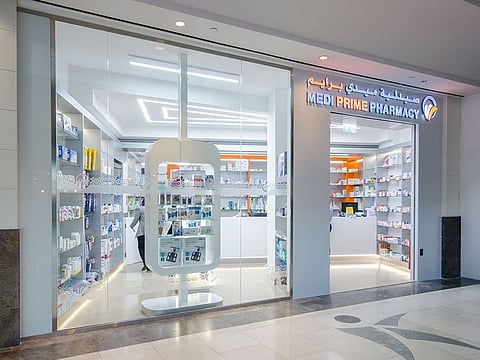UAE’s Prime Healthcare wants to make a breakthrough into halal pharmaceuticals
Prime signs up with Malaysia’s Pharmaniaga to sell halal-labelled medicines in UAE

Dubai: Halal medicines as a category within the wide universe of pharmaceuticals?
Dubai’s Prime Healthcare is definitely hoping this breakthrough happens in the UAE and Gulf markets – and at some point in the near future itself. “Worldwide, halal pharmaceuticals make up 7 per cent of the global pharma market, but many still remain unaware of such options,” said Dr. Jamil Ahmed, Managing Director at Prime, which operates healthcare facilities and pharmacies in the UAE.
“Compare that with halal food, which is already a $1 trillion plus global market and expected to see growth of 17 per cent in the next four years to be $3 trillion. Clearly, there is a lot of awareness that needs to created around halal pharmaceuticals.”
Classifying halal pharmaceuticals
They should not contain any parts of products of animals that are non-halal. They should not contain any human parts or their derivatives that are not permitted by Sharia. During their production, halal pharmaceuticals must be separate from any other non-compliant pharma product.
A sort of a fist step has been with Prime signing up with one of the leading names in the business, Pharmaniaga Partners of Malaysia. The deal encompasses the right to register, import, market, sell and distribute pharmaceutical products from the Pharmaniaga-owned entity, PMB. On whether the deal also includes rights to manufacture these generic drugs locally, Dr. Ahmed said that would depend on how fast the local market adapts to this line.
Still ‘complex’
Getting the regulatory approvals are “more complex” on halal medicines, said Dr. Ahmed. “Once those established processes are there, clearing approvals will be easier,” he added. “Right now, the market is too narrow, and there is also resistance at the moment from some of the established pharma makers.
We will, through this alliance with PMG, pursue all options to clear the way for wider acceptance of halal medicines.

South Asia could lead the way
From its still limited size of 7 per cent of the global market, halal pharmaceuticals could grow to be around $200 billion by 2024, according to the Prime chief. Key markets fuelling that growth would be Malaysia and Indonesia. Dr. Ahmed that global growth will pave possibilities in the Gulf and wider region.
“Dubai will be our base to bring our products to other countries in the Middle East, Africa and even Europe,” said Datuk Zulkarnain Md Eusope, Pharmaniaga Group’s Managing Director. “PMB is certified as a halal manufacturing plant by the Department of Islamic Development Malaysia.”
The facility manufactures more than 120 pharmaceutical products, and more than 95 of them have been certified halal, while the rest are on the way to receiving the same.
Prime Healthcare operates 15 medical centres, 15 Medprime pharmacies, diagnostic centres and a multi-speciality hospital. It has a workforce of 400 physicians and 1,500 support professionals.
Sign up for the Daily Briefing
Get the latest news and updates straight to your inbox



